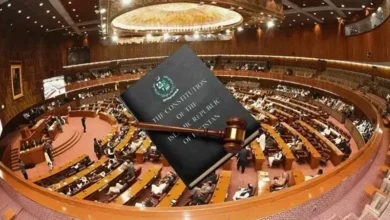The Indian army came under three major attacks in three weeks along 1,643-kilometer-long unsecured border with Myanmar as unrest in four bordering states has created “Kashmir-like situation”.
The border spans the northeastern states of Arunachal Pradesh, Nagaland, Manipur, and Mizoram. These border states have long been demanding freedom from Indian yoke. The Naga National Council, in the 1950s, launched a violent insurgency seeking a separate state. But the Indian government tried to crush the movement like it is doing in Kashmir. However, the movements continue.
On June 5, Indian forces came under attack in the Longding district of Arunachal Pradesh. The militants were heavily armed and managed to escape into Myanmar’s territory. The Indian army did not report damage it suffered.
In a search operation conducted on June 6, two militants were killed. They were reportedly affiliated with the banned outfit National Socialist Council of Nagaland (NSCN-K), which is not part of the ceasefire agreement, and has claimed responsibility for attacks on India.
There are two major factions of the NSCN – NSCN-K, led by S. S. Khaplang, and NSCN-IM, led by Isak Chishi Swu and Thuingaleng Muivah. The NSCN-K was designated as a terrorist outfit under the Unlawful Activities (Prevention) Act in 2015. The group is based in Myanmar and carries out attack on Indian forces from there.
The Indian army has not confirmed any losses suffered by the Assam Rifles, and the local media remains completely silent as New Delhi gagged the press. Observers believe India is deliberately withholding information to avoid damage to its international image.
The local media reported on May 12 that the Indian army killed 13 civilians in Nagaland’s Oting village. Later, the army issued a statement saying that it thought the civilians were militants “in a case of mistaken identity.” However, the local people said they were labourers who were returning home after work. In outrage, the villagers surrounded the army troops and set fire to their vehicles. They accused the Indian army of human rights violations.
In June 2015, Indian army convoys were ambushed in Manipur, resulting in the deaths of 18 soldiers. India later carried out a cross-border military operation inside Myanmar, which was described as a “surgical strike.”
In September 2024, India’s Cabinet Committee on Security approved a Rs31,000 crore project to secure the border through fencing and road construction for patrolling. However, the harsh terrain, resistance from local populations, and attacks by Myanmar-based group have largely reduced the plan to paper.
The Indian army is accused of targeting innocent civilians to cover up its own failures, which is further fueling hatred and rebellion in the region.
Experts warn that if the Indian government and military fail to prioritise transparency, a serious strategy, and inclusion of local communities, the region could turn into a “new Kashmir.” Hidden enemies in the forests, weak infrastructure, and political negligence have already dragged India into a new, covert, and failing war.











